Frequently asked questions and answers for Safety Limit Switches - Industrial Automation
What is direct opening force (DOF)?
Refer to the following table of terms for operating characteristics.
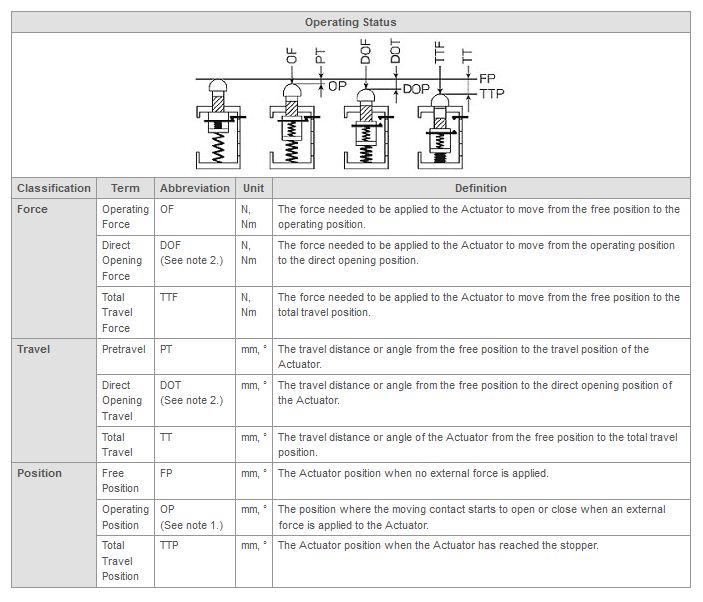
Note 1: For slow-operating safety switches, the operating position (OP) and return position (RP) are almost identical.
Note 2: The DOF, DOT, and DOP values are specified to ensure that the direct opening mechanism (forcibly opened contacts) functions correctly.
What is pretravel (PT)?
Refer to the following table of terms for operating characteristics.
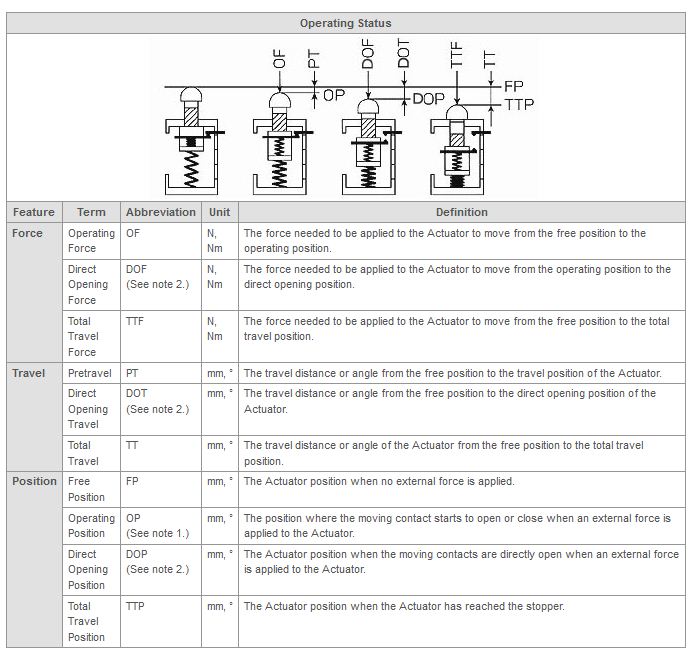
Note 1:For slow-operating safety switches, the operating position (OP) and return position (RP) are almost identical.
Note 2:The DOF, DOT, and DOP values were specified to ensure that the direct opening mechanism (forcibly opened contacts) functions correctly.
What is the processing for the conduit section, and what are the recommended connectors for D4B-[]N Safety Limit Switch?
Metal Connectors
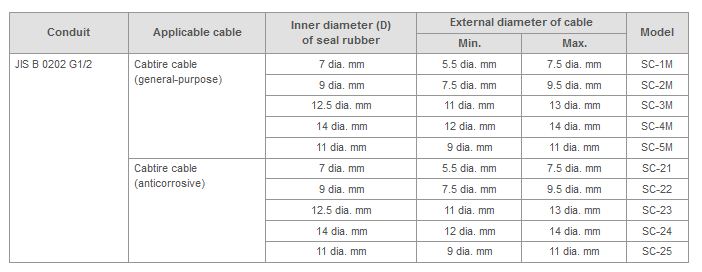


Resin Connectors




The case may be damaged if the connectors are tightened excessively.
What is a form lock mechanism?
Safety Limit Switches use inflexible interlocking components, related to the direct opening mechanism (forcibly opened contacts), so that the components will not distort or come apart even if great force is applied to the Actuator by contact welding or other cause.
The following diagram shows an example using a rotating shaft and lever.
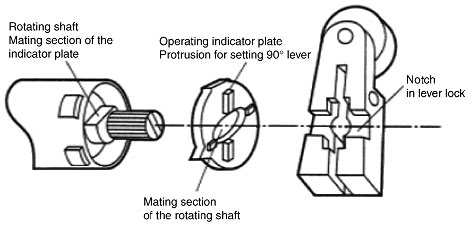
Note 1: The lever cannot be mounted backwards because the protrusion and notch interlock so that the lever will not free-turn even if a large force is applied.
Note 2: The Safety Limit Switches with changeable roller levers do not have the form lock mechanism.
What is a snap action?
The SPST-NC + SPST-NO contact snap action switches have the direct opening mechanism (forcibly opened contacts) defined under EN 60497-5-1. The NC contact side is the only side with a direct opening mechanism (forcibly opened contacts).
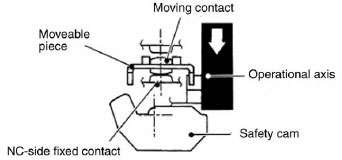
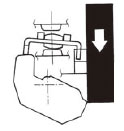
Safety cam directly pushes up the movable contact blade.
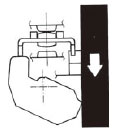
What is the difference between the Safety Limit Switches and the General Limit Switches?
The Safety Limit Switches are provided with a direct drive positive opening mechanism (positive actuation structure) with which welded portions are forcibly torn even if contact welding occurs, thus stopping a dangerous process (load) without fault and performing safe operation.
On the other hand, the General Limit Switches are not provided with the above mentioned mechanism. Therefore, if contact welding occurs, it keeps conduction state, and thus it cannot reliably stop dangerous process (load) and may perform dangerous operation.
For this reason, use the Safety Limit Switches in applications for safety purposes.
What is direct opening travel (DOT)?
Refer to the following table of terms for operating characteristic.
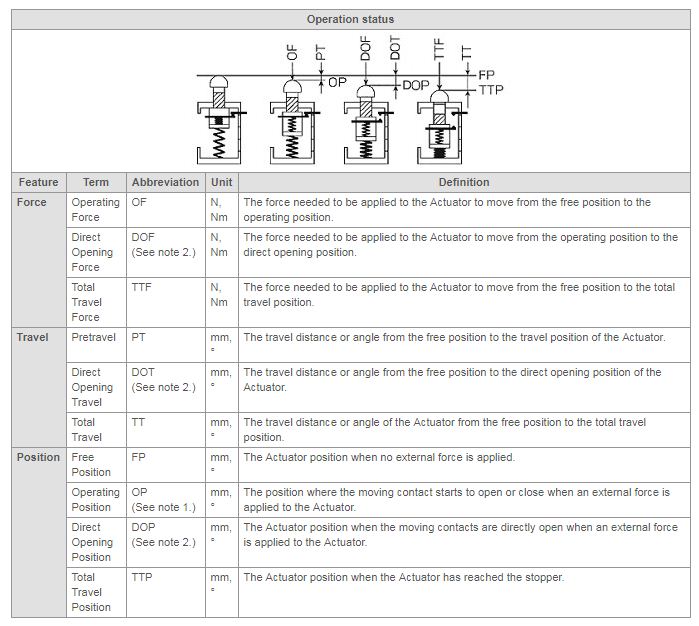
Note 1: For slow-operating safety switches, the operating position (OP) and return position (RP) are almost identical.
Note 2: The DOF, DOT, and DOP values were specified to ensure that the direct opening mechanism (forcibly opened contacts) functions correctly.
What is total travel (TT)?
Refer to the following table of terms for operating characteristics.
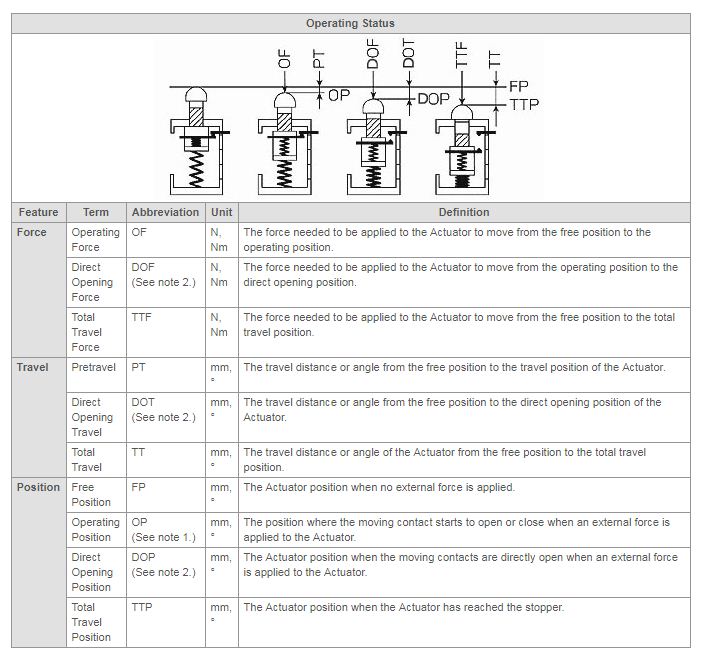
Note 1: For slow-operating safety switches, the operating position (OP) and return position (RP) are almost identical.
Note 2: The DOF, DOT, and DOP values were specified to ensure that the direct opening mechanism (forcibly opened contacts) functions correctly.